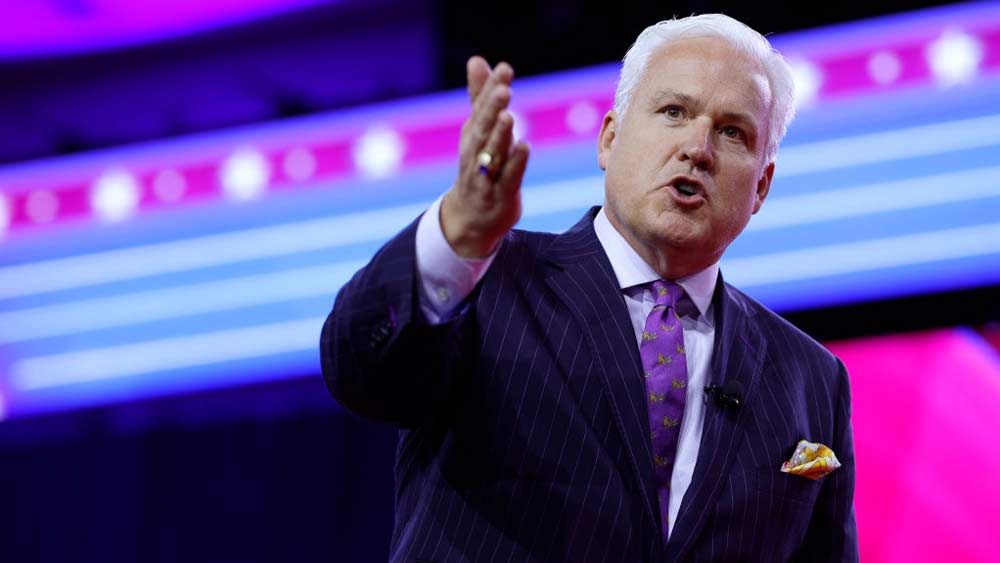October 23, 2013
Christie's Future Clouded by Gay Marriage
Bobby McGuire READ TIME: 4 MIN.
WASHINGTON Gov. Chris Christie, the popular, outspoken Republican governor of a heavily Democratic state, is making a delicate bid to cast himself as a leader of a more inclusive Republican Party as he seeks re-election and ponders a White House run.
While his re-election is not in doubt, any run for the presidency will be complicated by a vexing, evolving issue that has forced Christie to walk a very fine line: gay marriage.
On Monday, Christie decided to back down from his opposition to a ruling by the state's highest court allowing gay marriage in New Jersey likely signaling that he won't be intimidated by vocal conservatives who wield great influence in Republican presidential politics.
The move comes as political divisions deepen in a Republican Party that is suffering from a dramatic drop in approval ratings after the hardcore conservative tea party wing instigated a 16-day partial government shutdown in a failed bid to gut President Barack Obama's health care overhaul law.
Christie is betting his political future that after years of bitter battles in Washington and intra-party clashes among Republicans, voters will embrace an unapologetic deal-maker capable of attracting a broad coalition of voters as he's expected to do in two weeks when he's up for re-election. On Nov. 5, Christie, who has tried to distance himself from the party's most conservative members, hopes to become the first New Jersey Republican to win a governor's race with more than 50 percent of the vote since 1985.
There are, however, clear risks to his same-sex marriage decision.
While support for gay marriage is growing among the American public in general, conservatives who oppose gay marriage traditionally dominate the state-by-state primaries that pick the Republican presidential nominee.
"Abandoning foundational principles that go beyond politics is not the way to get positive attention in South Carolina," said Bob McAlister, a veteran Republican strategist, referring to a traditionally conservative southern state that votes early in the nominating process.
Republicans across the political spectrum concede that public opinion on same-sex marriage in 2016 is likely to be dramatically different than in 2008 or even 2012.
A CNN-ORC poll found in June that 34 percent of Republicans supported legal recognition of same sex marriage, a number that had jumped more than 10 percentage points from a year earlier. The poll found strong majorities of independents and Democrats in favor.
Even before the fallout from the government shutdown, Republicans were in the midst of some deep soul-searching after losing the White House to Obama and losing ground to Democrats in Congress last November. Leaders of the party later issued a report calling on Republicans to do a better job courting younger voters who are less concerned with social issues like same-sex marriage than traditional conservatives who dominate the party's grassroots.
Christie, for his part, did not actually come out in support of gay marriage, and may have given himself some political cover with conservatives by vetoing a bill last year to legalize same-sex weddings. When a judge ruled last month that the state must allow same-sex couples to wed, Christie kept up his opposition by appealing that ruling.
The state's highest court then agreed to take up the case but refused to delay the start of gay weddings in the meantime, saying Christie's administration had little chance of prevailing in its appeal.
Just hours after gay couples began exchanging vows on Monday, Christie announced that he was withdrawing his appeal. The decision makes New Jersey the 14th U.S. state to legalize gay marriage.
Advisers to the governor said that in dropping the appeal, Christie stayed true to his principles.
"Although the governor strongly disagrees with the court substituting its judgment for the constitutional process of the elected branches or a vote of the people, the court has now spoken clearly as to their view of the New Jersey Constitution and, therefore, same-sex marriage is the law," Christie spokesman Michael Drewniak said in a statement.
Christie's decision puts him in much the same situation as 2012 Republican presidential nominee Mitt Romney, who was governor when the highest court in Massachusetts made that state the first to legalize same-sex marriage almost a decade ago.
Romney, too, said he was forced to comply with the rule of law once it was settled by the courts. But that wasn't enough to win over many skeptical conservatives who dogged Romney throughout the primaries, lending support to opponents who constantly attacked him from the right. While Romney ultimately secured the nomination, he was weakened by the bruising primaries as he was forced to take more conservative positionson such issues as immigration and went on to lose the general election to Obama.
Conservative leaders have already lashed out at Christie's decision, but there are signs even in some conservative strongholds that Christie's bet is a smart one.
In Iowa, which traditionally launches the nominating process, Republican activist and devout social conservative Susan Geddes says voters, including Republicans, care far less about opposing gay marriage than even 10 years ago.
"You have to explain to people, people like me, that the rest of the world doesn't think the way we do," said Geddes, who served as a top campaign consultant to conservative Republican candidates for the past several years. "That's upsetting for people. But if we want to have our party be effective, we have to accept opinions like that."


